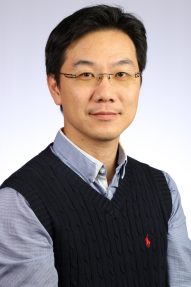Dr Laurence Cheung: Studying the interaction between bone and leukaemia cells to improve treatment outcomes in childhood leukaemia

Many children diagnosed with leukaemia suffer bone pain. Skeletal defects and reduced bone formation are also commonly observed, suggesting leukaemia cells can alter the surrounding bone cells and possibly favour leukaemia development in the bone marrow.
It is well documented that the immediate environment (neighbouring cells) of cancer cells influences many stages of cancer progression. We have established preclinical models that reproduce the changes in the bones of children with leukaemia.
Our research will study the interaction between bone cells and leukaemia cells, and evaluate if restoration of a healthy bone marrow environment improves treatment outcomes. A combined approach that targets both cancer cells and neighbouring cells has the potential to translate into a highly effective strategy, to treat the children diagnosed with leukaemia.
About Laurence
Laurence is an accomplished pharmacist/scientist who has a passion to improve health outcomes in children. He is a Senior Lecturer at Curtin University and a Senior Research Officer at Telethon Kids Institute. He completed his PhD studies at Telethon Kids Institute in the area of haematopoiesis and paediatric leukaemia in 2014. Dr Cheung’s research interests fall into three main areas: (i) investigation of the cellular and molecular mechanisms underlying the interaction of leukaemia cells with the bone marrow microenvironment, (ii) assessment of novel combinatorial therapeutics in infant acute lymphoblastic leukaemia, and (iii) evaluation of the palatability of a novel formulation in paediatric patients. Dr Cheung was named the 2019 Cancer Council Western Australia Early Career Researcher of the Year and received the STEM (Science, Technology, Engineering, Mathematics) Early Career Research Award at Curtin University in 2019.
This project is kindly supported through the Estate of Florence Brown
Last updated on October 4th, 2022
Developed by the Leukaemia Foundation in consultation with people living with a blood cancer, Leukaemia Foundation support staff, haematology nursing staff and/or Australian clinical haematologists. This content is provided for information purposes only and we urge you to always seek advice from a registered health care professional for diagnosis, treatment and answers to your medical questions, including the suitability of a particular therapy, service, product or treatment in your circumstances. The Leukaemia Foundation shall not bear any liability for any person relying on the materials contained on this website.